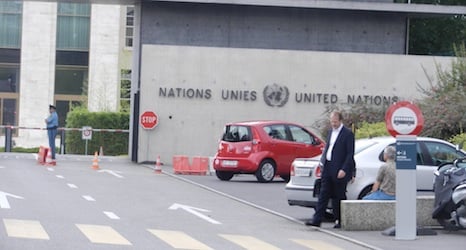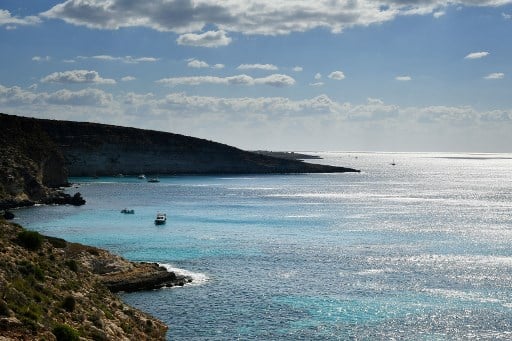The talks will be overseen by UN envoy to Libya and the UN chief's special representative Bernardino Leon.
A press conference is scheduled on Wednesday afternoon before they start.
The oil-rich North African country is in tatters with rival governments and parliaments and a slew of militias fighting for territory.
"This is an opportunity the Libyans cannot afford to miss," the EU's foreign policy chief Federica Mogherini said on the eve of the talks.
"I want to praise both sides participating and encourage all those in Libya that have not yet decided on participation . . . to do so".
The UN Security Council imposed an arms embargo at the start of Libya's 2011 uprising, which ousted and killed dictator Moammar Kadhafi, to protect civilians from his forces.
But the country descended rapidly into chaos, despite UN efforts to contain the violence. It is now mired in its worst fighting since Kadhafi's downfall.
And now, the head of the internationally-recognised government, Prime Minister Abdullah al-Thani says his beleaguered government needs the embargo to be lifted to fight the militias.
"The international community must cooperate with Libya to put an end to extremism and terrorism and help government institutions, namely the army, by lifting the arms embargo," Thani told AFP ahead of the talks.
The dialogue in Geneva aims at reaching an agreement on the formation of a unity government and the adoption of a new constitution — a tall order given the current situation.
Thani's government and the elected parliament have been based in the remote east since an Islamist-led coalition seized Tripoli in August.
The coalition known as Fajr Libya (Libya Dawn) also holds third city Misrata.
It launched a bloody offensive in December to seize control of key oil terminals but was repelled by the army.
Most countries pulled out their diplomats from Tripoli after the city was taken by Libya Dawn.
Islamists, led by the UN-blacklisted Ansar al-Sharia, also control parts of second city Benghazi in the east and have been locked in battle with
pro-government forces since May.
Crucial juncture
The Islamic State (IS) group that has seized large areas in Iraq and Syria is also thought to have gained a foothold in eastern Libya, and recently
claimed to have executed two Tunisian journalists there.
The United Nations says that since fighting intensified in May, hundreds of civilians have been killed and hundreds of thousands more have fled their homes.
Libya's neighbours, fearful of a spillover of the violence, have repeatedly called for international intervention.
The European Union said earlier that the Geneva meeting "represents a last chance which must be seized".
A new round of talks had been scheduled for December 9th but was repeatedly delayed as fighting intensified between the government and Islamist-backed militias.
Each faction claims its army is the country's real and each seeks international recognition.



 Please whitelist us to continue reading.
Please whitelist us to continue reading.
Member comments